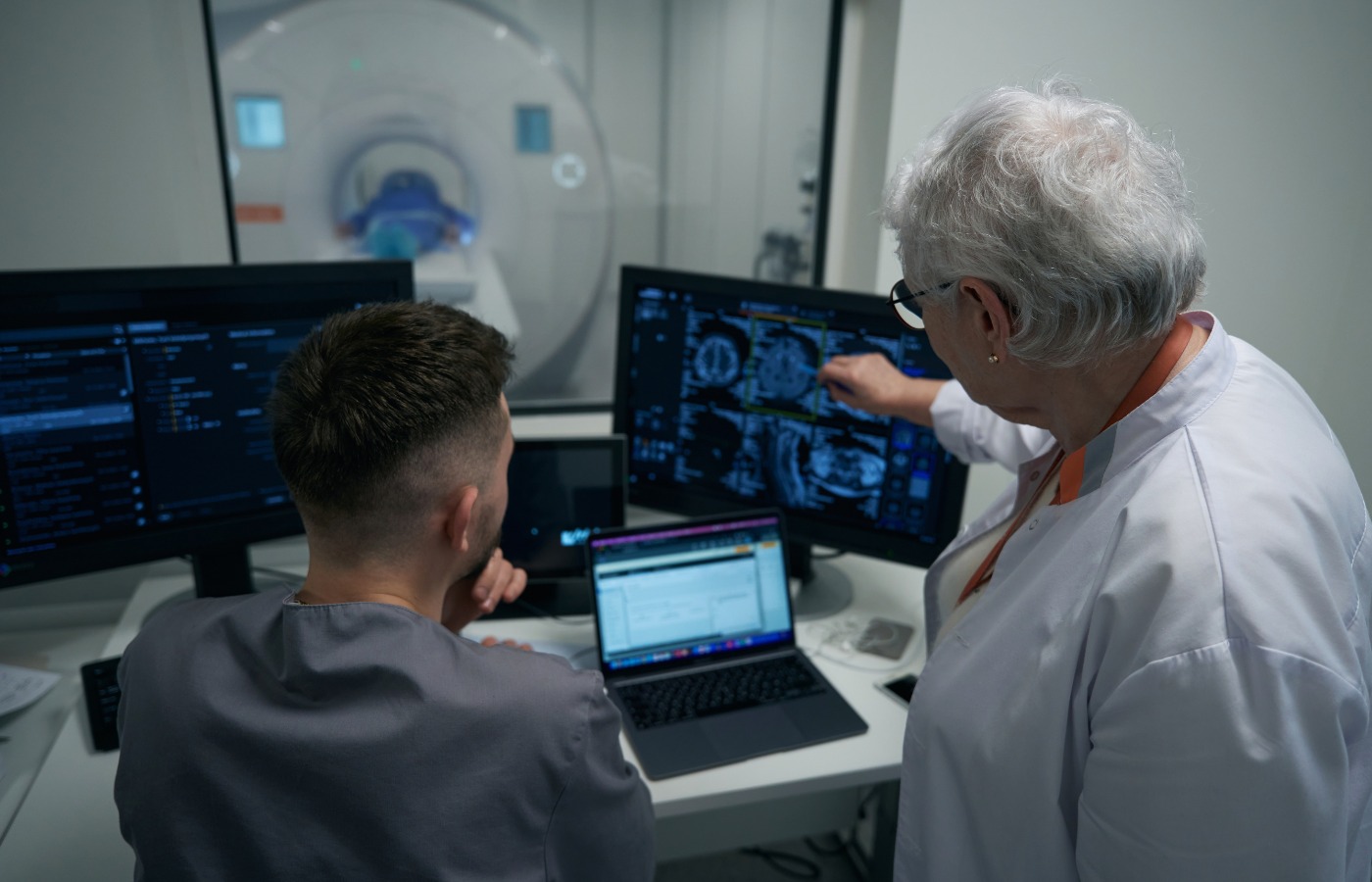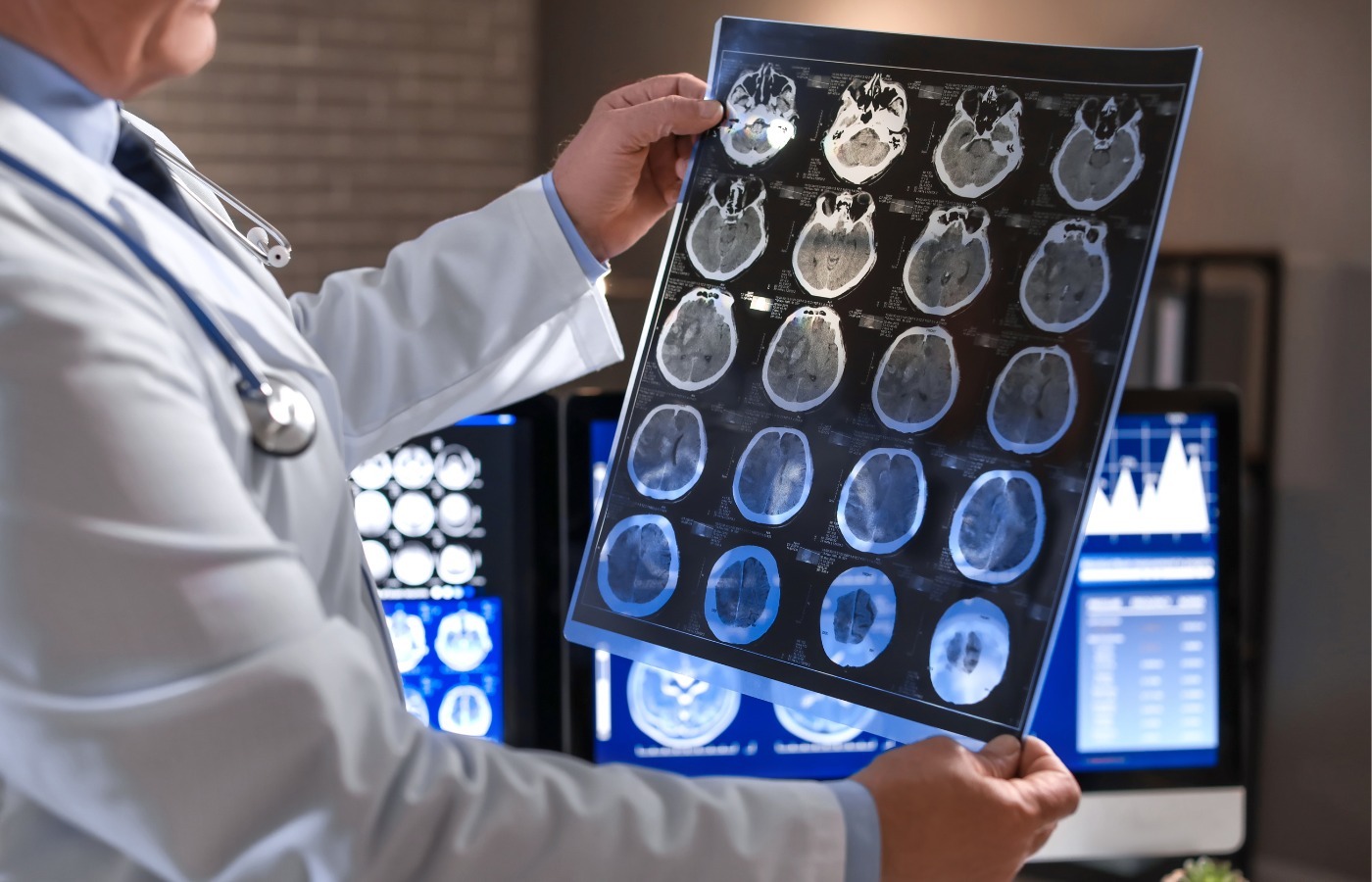
When it comes to diagnosing and evaluating brain-related conditions such as stroke and brain injuries, MRI brain scans play a critical role in providing detailed and accurate imaging. These scans are non-invasive, safe, and incredibly effective at detecting brain abnormalities that can go unnoticed with other imaging techniques like CT scans or X-rays. With the ability to assess both the structure and function of the brain, MRI brain scans offer a comprehensive solution for medical professionals to understand the extent of damage caused by stroke and brain injuries.
A brain MRI scan (Magnetic Resonance Imaging) uses powerful magnets and radio waves to create detailed images of the brain's internal structures. Unlike other imaging methods that involve radiation, such as X-rays or CT scans, MRI brain scans are radiation-free and can be used to monitor changes in the brain over time without risk to the patient.
The MRI process involves aligning the hydrogen atoms in the brain with a strong magnetic field. These atoms then emit signals that are captured by the MRI machine and converted into high-resolution images. These images are crucial for diagnosing a wide range of brain conditions, from structural abnormalities like tumors and strokes to functional disorders like multiple sclerosis and traumatic brain injuries.
A stroke occurs when there is an interruption in the blood supply to the brain, either due to a blockage (ischemic stroke) or bleeding (hemorrhagic stroke). In both cases, prompt diagnosis and treatment are essential for minimizing brain damage and improving recovery outcomes. An MRI scan brain is one of the most effective tools for detecting and evaluating the severity of a stroke.
1. Identifying the Type and Location of Stroke - One of the first steps in stroke evaluation is determining whether it is ischemic or hemorrhagic. MRI brain scans are essential for differentiating between the two types of strokes. Diffusion-weighted imaging (DWI), a special MRI technique, can detect early signs of ischemic stroke by showing areas of the brain that have experienced reduced blood flow. This allows doctors to quickly assess the location of the stroke and begin appropriate treatment to restore blood flow to the affected brain regions.
For hemorrhagic strokes, where bleeding occurs in the brain, MRI brain scans can accurately locate the site of the hemorrhage and assess the extent of bleeding. This is critical in determining whether surgical intervention or other medical treatments are needed to manage the bleeding.
2. Assessing the Extent of Brain Damage - MRI scans are instrumental in evaluating the extent of brain damage caused by a stroke. Whether due to tissue death (in ischemic stroke) or brain swelling (in hemorrhagic stroke), MRI provides high-resolution images that allow doctors to see which areas of the brain have been affected. This information is crucial for determining the patient’s prognosis and deciding on the best course of action for treatment and rehabilitation.
With an MRI scan brain, doctors can visualize the affected areas and track changes over time, providing a clearer picture of the stroke’s progression or improvement. This helps in planning the next steps for recovery, which may include medications, rehabilitation, or lifestyle changes.
3. Monitoring Recovery and Preventing Recurrence - After a stroke, MRI brain scans are often used to monitor recovery and ensure that the brain is healing properly. These scans help doctors observe the formation of new blood vessels (reperfusion) in the affected areas and ensure that there is no further damage. Additionally, follow-up MRI scans are essential for detecting any signs of a second stroke or complications, allowing for early intervention to reduce the risk of recurrence.

Brain injuries, whether traumatic (such as concussions) or non-traumatic (such as brain swelling), can cause significant changes in brain structure and function. Accurate diagnosis is essential to guide treatment and rehabilitation. MRI brain scans are often the gold standard in assessing brain injuries, as they provide detailed images that can reveal even subtle changes in brain tissue.
1] Detecting Brain Damage After Trauma - MRI scans can identify various forms of brain damage caused by traumatic brain injury (TBI). These injuries can range from mild concussions to severe brain hemorrhages or contusions. MRI scans can detect structural changes in the brain that indicate bleeding, bruising, or swelling caused by the injury. They are particularly useful in detecting diffuse axonal injury (DAI), a type of injury that occurs when the brain’s white matter is damaged due to shaking or rotational forces. CT scans may miss such injuries, but an MRI scan brain can capture these subtle but significant changes.
2] Assessing the Severity of Brain Injury - MRI brain scans are also vital for evaluating the severity of a brain injury. Depending on the nature of the trauma, MRI scans can provide insight into the extent of damage to specific regions of the brain, such as the frontal lobes or brainstem. The ability to pinpoint the location of damage is essential for determining how the injury may affect motor function, cognitive abilities, and other neurological processes.
3] Monitoring Long-Term Effects of Brain Injury - In addition to detecting immediate injuries, MRI brain scans can also be used to monitor the long-term effects of brain injury. For instance, patients who suffer from post-concussion syndrome (PCS) or those with chronic traumatic encephalopathy (CTE) may undergo regular MRI scans to track changes in the brain over time. MRI scans can identify the gradual buildup of neurodegenerative changes, which may help doctors manage symptoms and plan appropriate care.
If you or a loved one require an MRI scan brain to evaluate stroke or brain injury, finding a reputable MRI scan centre near me is essential for getting high-quality diagnostic imaging. It’s important to choose a facility that is equipped with the latest MRI technology and staffed by experienced professionals.
For residents looking for a trusted diagnostic centre, Diagnopein offers advanced MRI brain scan near me services, ensuring accurate and timely results. Diagnopein’s state-of-the-art imaging facilities and highly trained technicians can provide precise brain MRI scans, helping you receive the best possible care and diagnosis.
One common concern when considering an MRI brain scan is the MRI brain scan cost. While the cost of an MRI can vary depending on several factors, such as the location of the facility, the type of MRI being performed, and whether you have insurance coverage, it’s important to weigh the cost against the benefits of early and accurate diagnosis. For those who are concerned about MRI brain scan cost, some diagnostic centres like Diagnopein offer affordable pricing options, and many insurance providers cover the costs of MRI scans when deemed medically necessary.